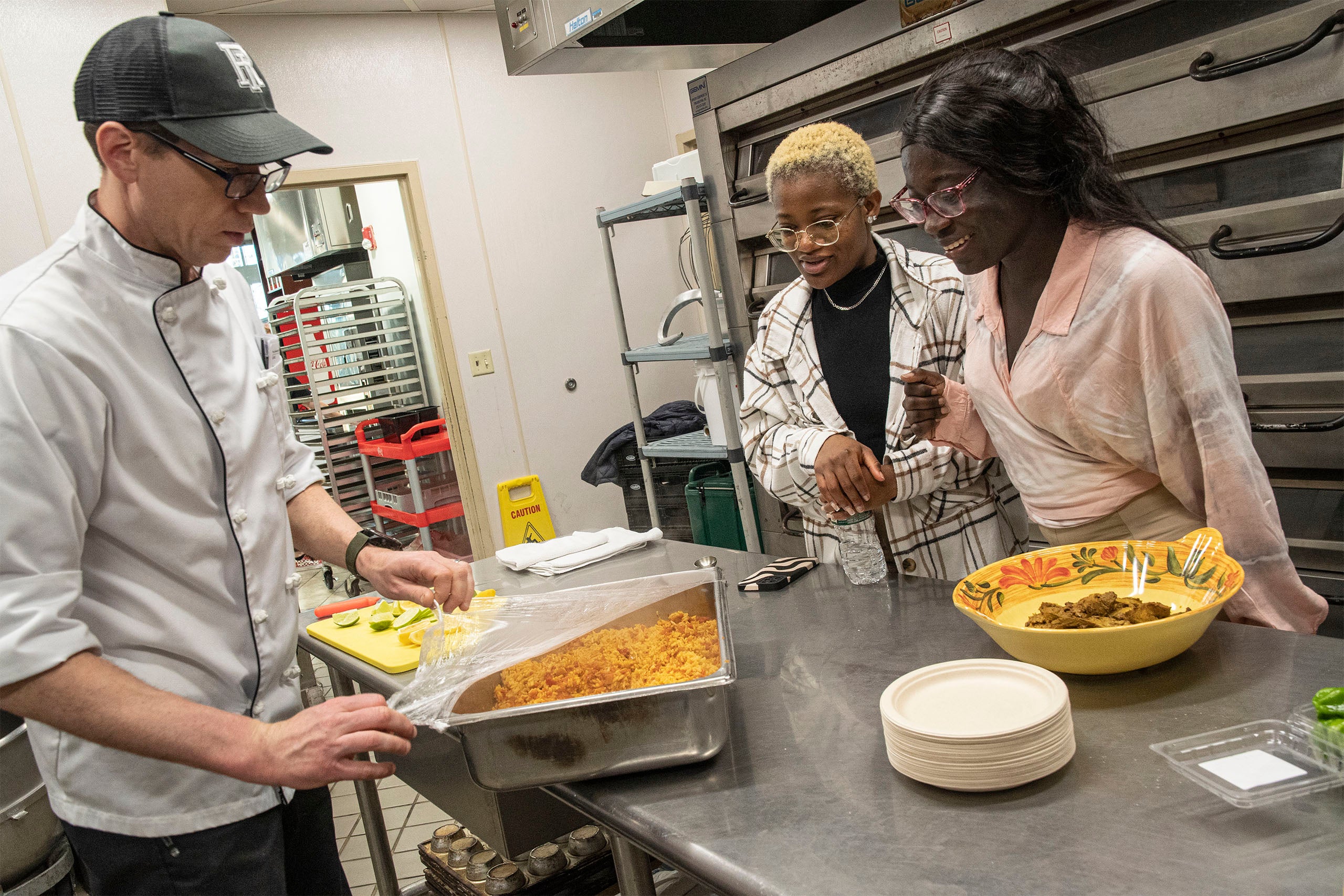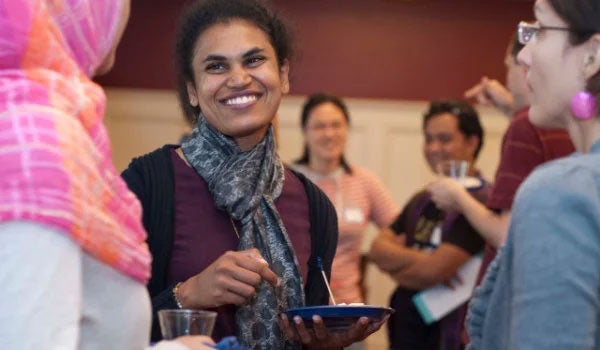
In the first half of their college careers, health sciences majors Giftilyn Ntiamoah ’24 of Ghana and Kamolat Ibikunle ’23 of Nigeria found eating in campus dining halls induced feelings of homesickness.
They missed home-cooked meals and favorite foods. “Freshman year I lived on fries and burgers,” says Ntiamoah. “I just didn’t like other stuff.”
“It was a culture shock,” Ibikunle adds.
The pair made do, seeking out campus housing that offered access to a kitchen, for instance, but that was only a partial solution. This went deeper than not liking standard American fare. Eating alone or with a few friends was isolating. Ibikunle and Ntiamoah wanted to stage an event, an experience open to all University students, that would more fully integrate international students into campus life.
On Friday, Feb. 24, they’ll get their wish. Mainfare Dining Hall will offer an authentic West African dinner from 5-8 p.m. On the menu: suya flank steak, spicy tilapia, fried yuca, fried sweet plantains, jollof rice, West African meat pies, and Nigerian-style sweet buns.
Making it happen
The idea for the dinner came about through conversations the students had with Frankie Minor, assistant vice-president and director of Housing and Residential Life. The two students worked with Minor, who introduced them to Chef Pierre St-Germain, director of Dining Services, in the hope that a collaboration between the students and Dining Services might be possible. St-Germain says he and fellow chef Aaron Fitzsenry welcomed the opportunity.
“Because this is student-driven, I want to make sure that we’re being both intentional and accurate,” in the menu planning, St-Germain says. “Last semester, I met with the Student Senate, and they said we don’t serve enough ethnic food in the dining halls. And even though I completely agree, I’m also trying to appeal to a broad base here on campus.
“So I’m hoping that by doing some very intentional things such as focusing on West African food for Black History Month that we can be a little bit better about introducing ethnically varied foods.”
With the help of Ntiamoah and Ibikunle, both of whom will assist the Dining Services staff in preparing the meal on the night of the 24th, St-Germain and Fitzsenry have been sourcing ingredients and testing recipes. The West African menu will be the main Mayfair meal that evening and that could mean serving upwards of 2,000 students.
All involved are excited at the prospect.
“There can be a huge gap between feeding people and caring for them,” Fitzsenry says. “Our culinary staff welcomes opportunities like these to be inclusive, to explore other cuisines. I am so grateful.”
‘Our culture on campus’
Ibikunle and Ntiamoah look forward to providing fellow international students with an experience of home and of belonging.
“Ever since I came to this school in 2019, my friends and I have always talked about wanting to see a little bit of our culture on campus,” Ibikunle says. “But we didn’t know how to go about that.”
Student organizations such as SAWA, the Student Alliance for the Welfare of Africa, do provide opportunities for international students to gather and socialize, Ibikunle says, but this dinner is what she means when talking of an opportunity to share an aspect of her culture with the larger campus community.
And how will Ibikunle and Ntiamoah know if their dinner is a success?
“We want to hear how good the food is from the students. We want them to feel like they’re included,” Ntiamoah says. “I want everyone to feel comfortable. I want everyone to feel a part of each other and not to feel like there’s a separation—even though there is. And it will take time to break that barrier. But this is a start.”
—Marybeth Reilly-McGreen

